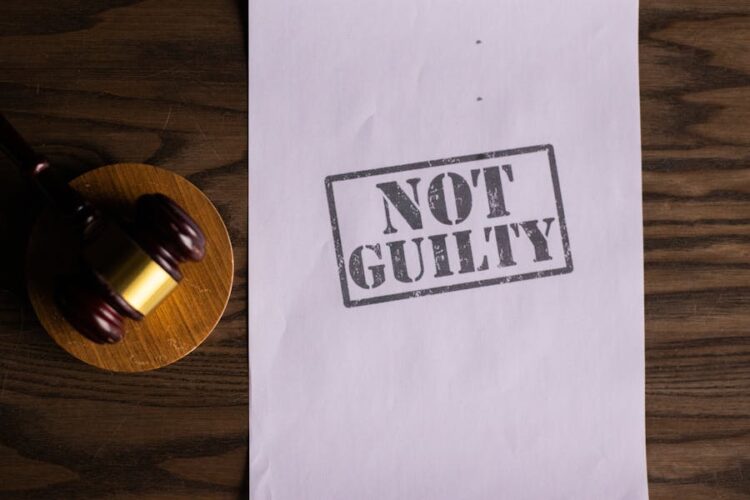With much of our social lives now occurring online, many people have become victims of cyberbullying in one form or another. But what are, in fact, the legal remedies available to victims? From civil remedies, criminal prosecution, and protective measures, this article will go through the various legal options victims of cyberbullying can pursue.
What is cyberbullying?
Colloquially, cyberbullying refers to acts that harass, threaten, or intimidate others through the use of social media, messaging apps, forums, or any kind of electronic communication.
According to studies by the Pew Research Center, any of the actions listed below count as an act of cyberbullying when done digitally:
- Offensive name-calling;
- Spreading of false rumors;
- Sending or sharing explicit images without consent;
- Physical threats;
- Constantly asking where someone is, what they’re doing, or who they’re with by someone other than a parent.
Under this definition, studies show that around 46% of teenagers have experienced cyberbullying. However, adults experience cyberbullying as well, especially in professional or social contexts.
Legally speaking, there is no official definition for cyberbullying under US federal laws. However, different states have various laws that are often applied to acts of cyberbullying. These also include several pathways for recourse, varying by jurisdiction and the specific nature of the conduct.
These also include allowing schools to carry out appropriate disciplinary action. Below, however, we will focus on civil and criminal legalities.
Civil Remedies
Victims of cyberbullying can file lawsuits in civil courts. Often, they result in financial compensation for damages, or offenders are at least required to cease their behavior.
1. Defamation
You have grounds for a defamation lawsuit if someone is spreading false information about you online that harms your reputation.
Defamation includes both libel (written statements) or slander (spoken statements). For example, if someone publicly falsely accuses you of a crime on social media, you can opt to sue for libel. To succeed, the plaintiff must usually show that the statements were both false and damaging. Public figures may face a higher bar, needing to prove “actual malice.”
2. Intentional Infliction of Emotional Distress (IIED)
In more extreme cases of cyberbullying, victims may sue for IIED. This would require having evidence that the offender’s conduct goes well beyond the bounds of decency. Any kind of repeated, extreme, and targeted harassment intended to emotionally devastate a person can count as IIED. For example, receiving anonymous threatening messages or being impersonated.
3. Invasion of Privacy
Publicly posting private and sensitive media and information without the owner’s consent qualifies as an invasion of privacy.
Criminal Law
Depending on the jurisdiction, cyberbullying can also lead to criminal charges. These laws are typically applied when the offending conduct escalates to more serious threats, stalking, or exploitation.
1. Harassment and Stalking Laws
Most states have harassment or cyberstalking statutes that are directly applicable to cyberbullying. They criminalize repeated, unwanted communications that cause emotional distress or fear. For example, someone can repeatedly send you harassing texts that threaten to publish your private information unless you comply with their demands.
2. Impersonation and Identity Theft
Cyberbullies can also harass you indirectly through impersonation. By creating fake profiles of you, they can deceive the people you know or act in a way that damages your reputation. This may constitute a criminal offense. Some states have specific impersonation laws, while it may fall under more general harassment laws in other states.
3. Revenge Distribution of Explicit Images
Nearly every state has laws against the non-consensual distribution of explicit images. Sharing intimate photos without consent—even if originally shared voluntarily to the offending individual can lead to criminal penalties.
Protective Orders
In addition to lawsuits, victims can also seek a restraining or protective order from courts to help prevent further contact or harassment. While commonly associated with domestic violence cases, many courts can also apply it to cases of digital harassment. When granted, a court legally bars a harasser from contacting the victim through any medium, not just through digital means.
Tips for Victims of Cyberbullying
If you think you are being cyberbullied, here are some tips to help you address the situation.
1. Document everything
Keep any and all screenshots, emails, texts, and any kind of media from your bully. These will be critical pieces of evidence should you pursue court action.
2. Do not engage
Do not reply to your bully or comply with their demands as much as possible. Some victims feel the need to retaliate, but doing so may lead to further emotional distress or even legal complications.
3. Contact authorities ASAP
Many victims hesitate to contact authorities, as they may feel like what they are experiencing “is not that serious.”
However, cases may get more complicated the longer you postpone reporting the offender.
4. Create another email address for legal correspondence
Consider creating an alternative email address dedicated solely to legal correspondence, especially if your other email address has been compromised or is where your bully is constantly contacting you. This can help preserve evidence and maintain privacy while legal proceedings are underway.
5. Platform reporting
While not a legal remedy, you should report the harasser to the relevant platform as soon as possible. Most social media sites and email providers have strict and clear policies against harassment. They also offer ways to block or report offenders or remove content that is meant to harm you.
Conclusion
Seeking legal action against cyberbullying may be complicated in the United States, given how different states have different laws about it. But that does not mean that there aren’t accessible legal options for victims to gain redress and justice.
However, even for those who have not experienced cyberbullying yet, it is important to know what legal options they have. With our social world only becoming more digital, any person can become the next victim.










